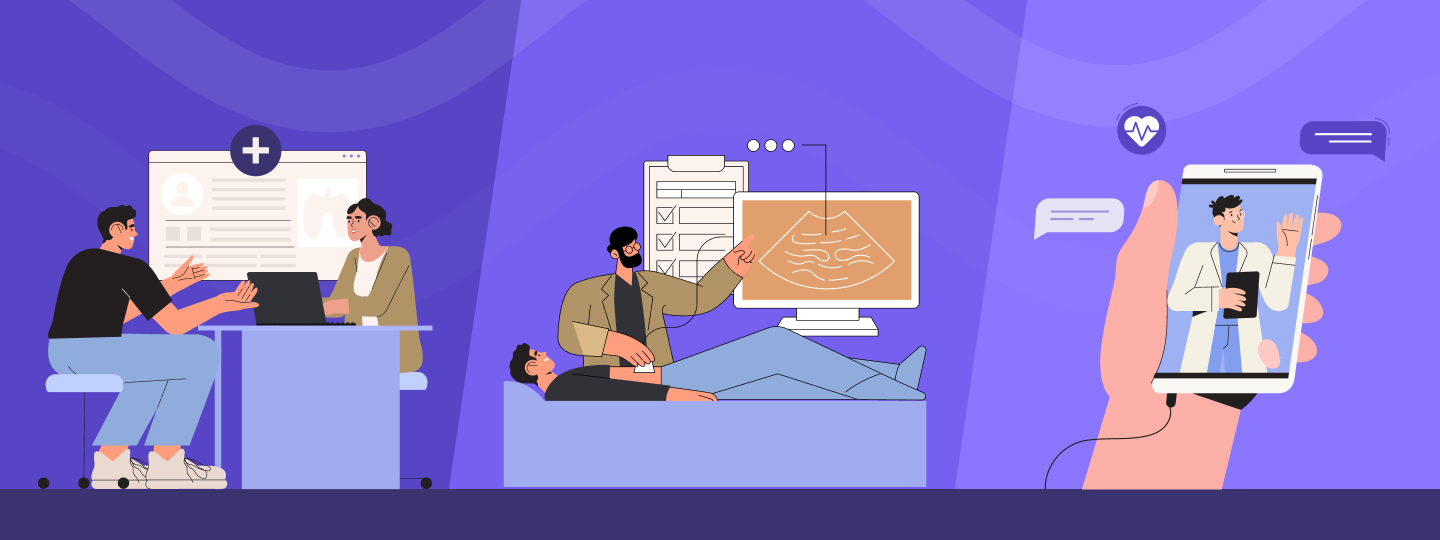Who would have thought that one day people would be interacting with their doctors over text messages? Gone are the times when you had to visit the doctor’s office to make an appointment, now, you can directly make an appointment on your mobile phone. In an era where everything is finding its place on the web, why should health-tech/healthcare companies stay behind? So, as this trend gains popularity, the healthcare sector is updating its practices by adopting the features that the modern digital world has in store for companies across all industries.
In today’s fast-changing healthcare environment, it’s widely known that effective communication is paramount. As a result, healthcare providers are increasingly turning to innovative solutions, and one platform that’s gaining immense popularity is WhatsApp. With a staggering user base of more than 2.7 billion individuals across 180 nations and a suggested projection to reach 3.14 billion by 2025, WhatsApp offers Health tech/Healthcare companies a range of opportunities to engage patients, provide essential information, and elevate their marketing efforts.
In this blog, we’ll delve into the top 10 use cases for WhatsApp marketing in the healthcare sector, demonstrating how this versatile tool can revolutionize patient engagement, education, and overall experience.
Bonus Read: The Ultimate WhatsApp Marketing Guide
10 WhatsApp Use Cases for your Healthtech business
Use Case 1: Appointment Reminders and Scheduling
One of the most critical challenges in healthcare is minimizing patient no-show rates. 140 billion messages are exchanged on WhatsApp daily, an increase of 40 billion from last year. Therefore, automated appointment reminders through WhatsApp can prove to be a highly effective solution. By sending real-time notifications to patients, healthcare providers can significantly reduce the likelihood of missed appointments. Furthermore, the platform’s interactive capabilities allow patients to seamlessly schedule appointments, optimizing both patient convenience and clinic operations. This streamlined process not only improves patient attendance but also fosters higher patient satisfaction rates, leading to a more efficient and patient-centric healthcare environment.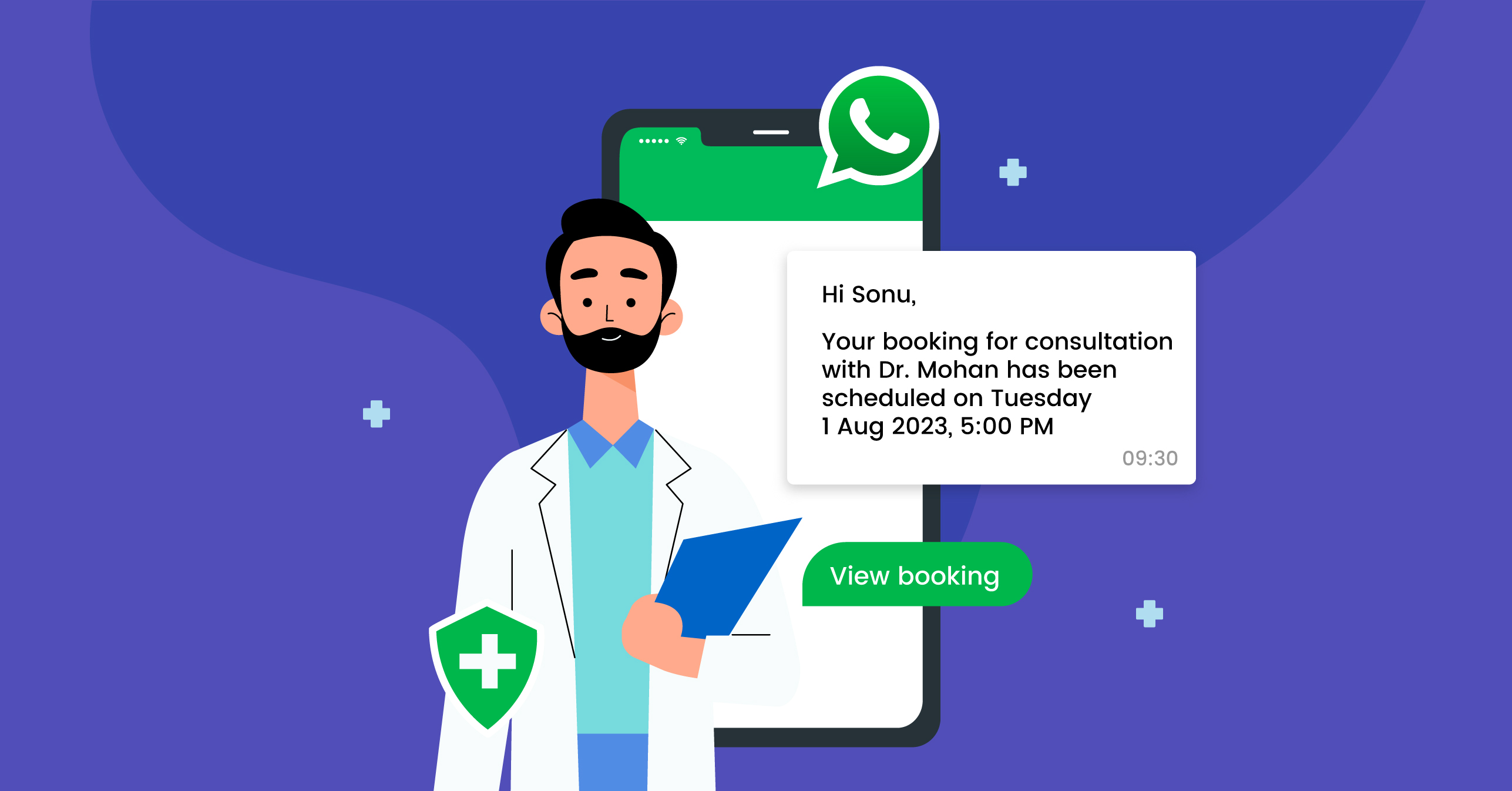
Use Case 2: Health Tips and Advice
Navigating the vast sea of health information can be overwhelming for patients seeking reliable guidance. In modern healthcare, where informed decisions play a significant role in well-being, WhatsApp emerges as an indispensable platform for healthcare providers to deliver personalized health tips, dietary insights, exercise routines, and holistic wellness advice.
Through WhatsApp’s accessible interface, healthcare providers can establish themselves as trusted sources of information by curating content that aligns with individual patient needs and preferences.
In fact, the adaptability of WhatsApp’s multimedia tools increases the impact of health advice and guidance. Providers can offer tempting pictures of healthy food selections, videos demonstrating good exercise practices, and interactive visualizations that highlight key health parameters. This engaging method not only grabs patients’ attention but also deepens their comprehension, leading to long-lasting behavioral changes.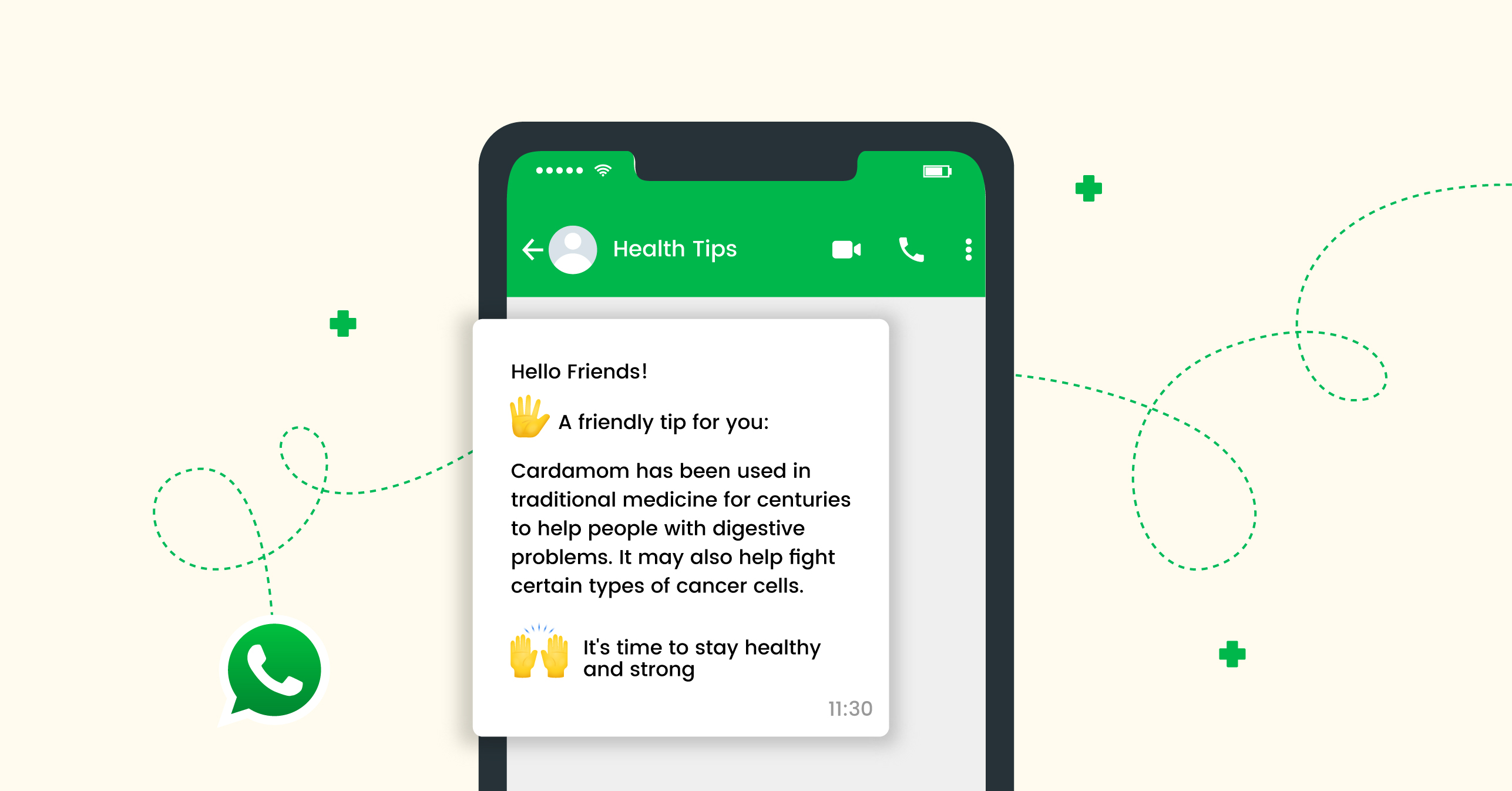
Moreover, as patients receive tailored advice that resonates with their goals, challenges, and aspirations, they develop a sense of partnership with their healthcare providers. This collaboration cultivates trust and positions healthcare professionals as allies in the pursuit of better health.
WhatsApp Use Case 3: Medication and Treatment Reminders
In the hustle and bustle of daily life, staying on track with regard to medication and treatments can prove challenging. Here’s where WhatsApp steps in, armed with an automated reminder feature that ensures that patients keep up with their medication treatments.
This use case holds special significance for patients managing chronic conditions, where meticulous adherence to medications and treatments is paramount for preventing disease progression and optimizing overall quality of life. WhatsApp’s automated reminders act as gentle nudges, alerting patients to their medication schedules and treatment protocols in a timely manner.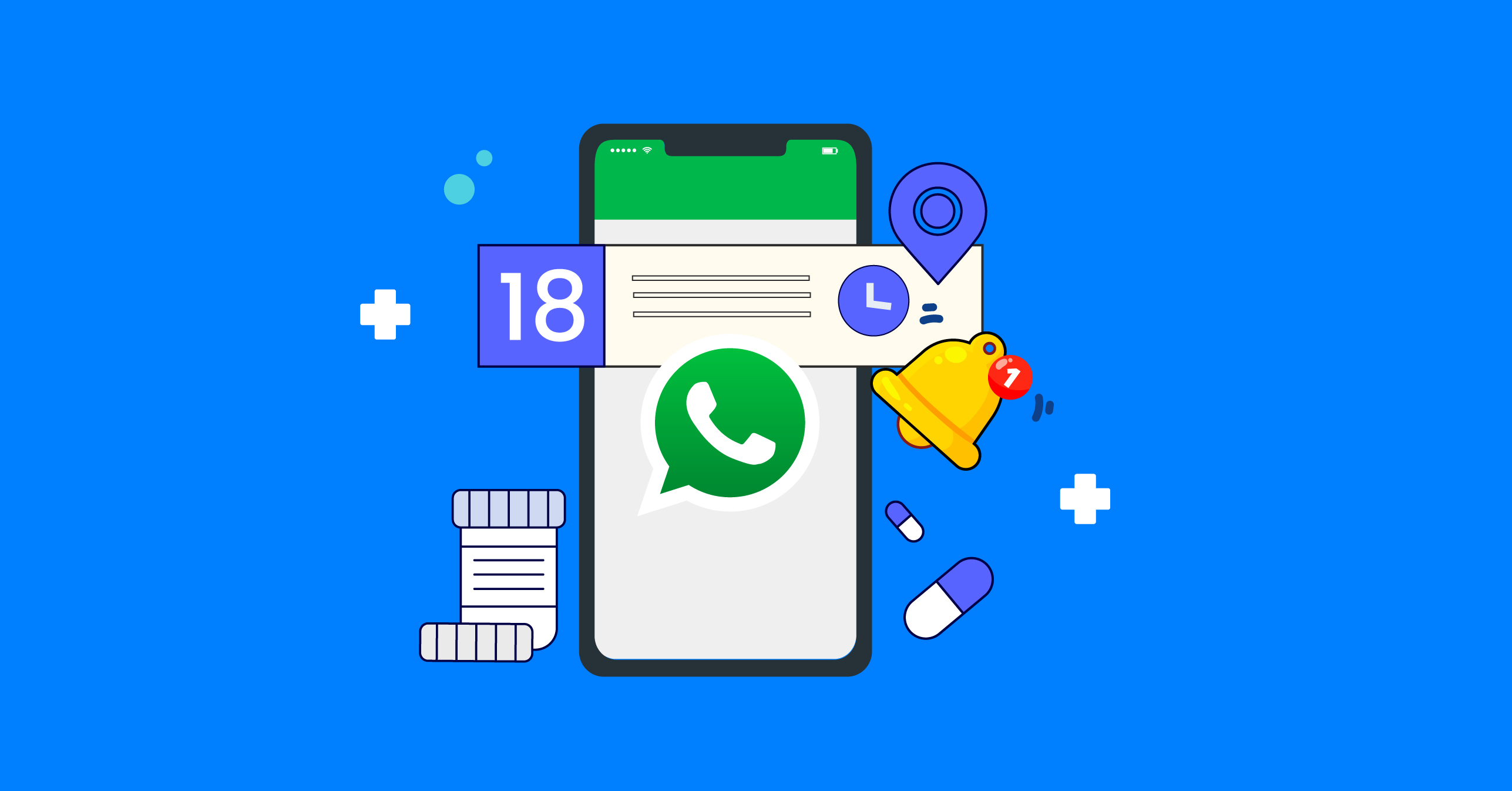
Beyond the limits of simplicity, these reminders hold the potential to reshape patient outcomes. The consistency and regularity of notifications act as powerful tools in combating forgetfulness and fostering a disciplined approach to health management. Patients are less likely to overlook doses, and treatment schedules become ingrained in their routines, resulting in improved therapeutic outcomes.
Better health outcomes are the result of increased adherence. Patients improve the effectiveness of therapies, minimize variations in health indicators, and decrease the possibility of flare-ups by adhering to prescribed regimens.
WhatsApp Use Case 4: Sharing Medical Research
Beyond patient-provider communication, WhatsApp has become a dynamic channel for doctors to connect, collaborate, and share the latest frontiers of medical research. This use case illuminates the transformative potential of WhatsApp as a vehicle for disseminating vital research insights within the medical community.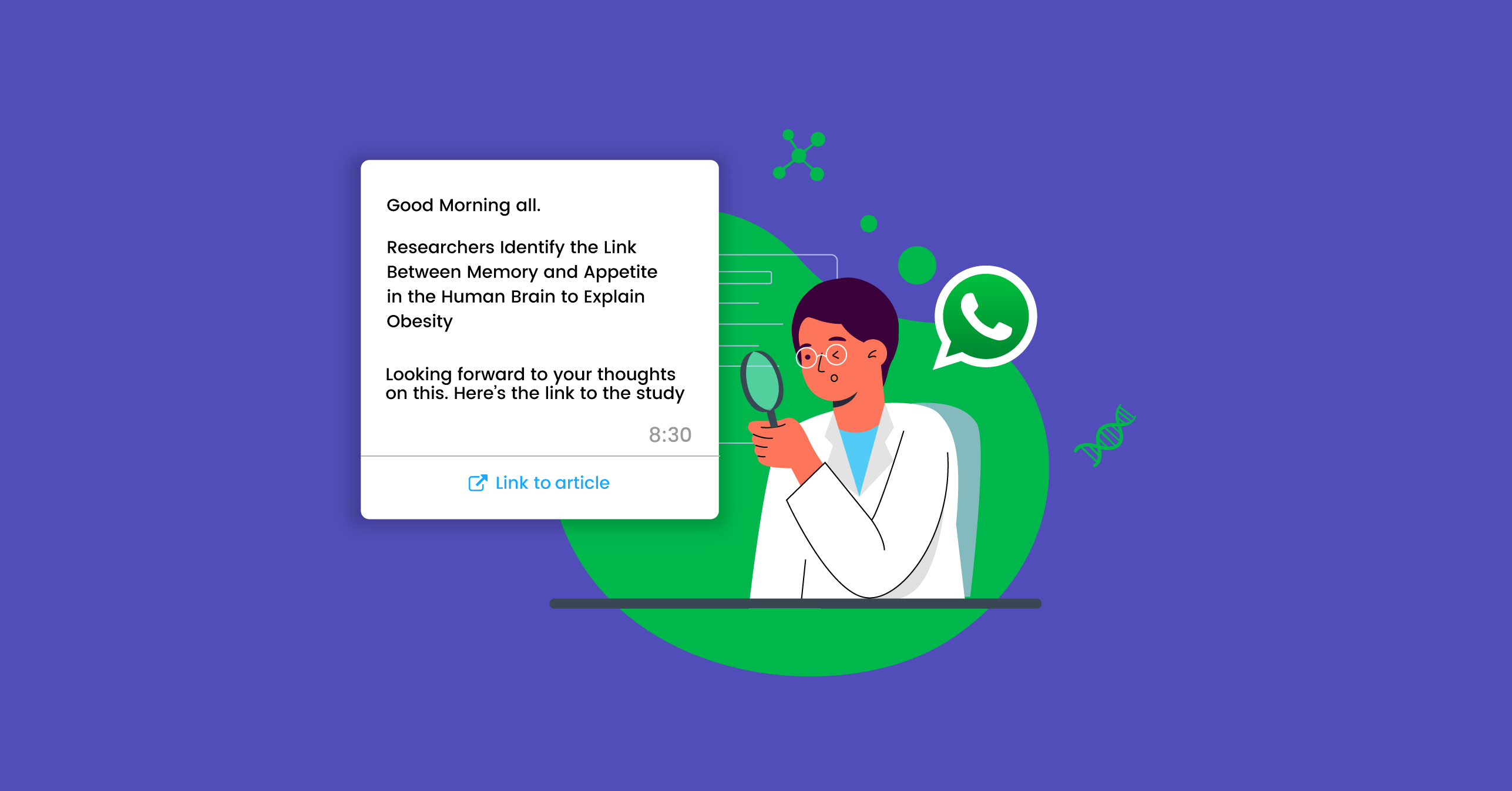
It becomes the bridge that spans geographical divides, enabling the rapid sharing of research papers, studies, and groundbreaking discoveries. This real-time connectivity heralds a new era of knowledge dissemination that accelerates learning and improves patient care.
This use case underscores the profound impact of knowledge sharing on healthcare advancement. As doctors share their research findings, they foster an environment of collective learning where each discovery contributes to a tapestry of medical expertise. This collaborative spirit isn’t just about individual progress; it’s about elevating the healthcare ecosystem as a whole.
The essence of this use case lies in its transformative effect on healthcare. Doctors not only learn from each other but also stay abreast of the latest research trends. The exchange of information isn’t just a transaction—it’s a catalyst that propels healthcare towards better treatment modalities and enhanced patient outcomes.
Use Case 5: Telemedicine Consultations
The rise of telemedicine has brought significant improvements to healthcare accessibility. Now, medical advice and consultations are not limited to physical clinics. WhatsApp has played a key role in this transformation by bridging the gap between patients and healthcare providers. It turns smartphones into tools for accessing medical expertise and makes healthcare more accessible. As per a survey conducted by the Journal of Hospital Management and Health Policy, 73.8% of the physicians surveyed expressed that they were satisfied with the efficiency of tele-medical consultation.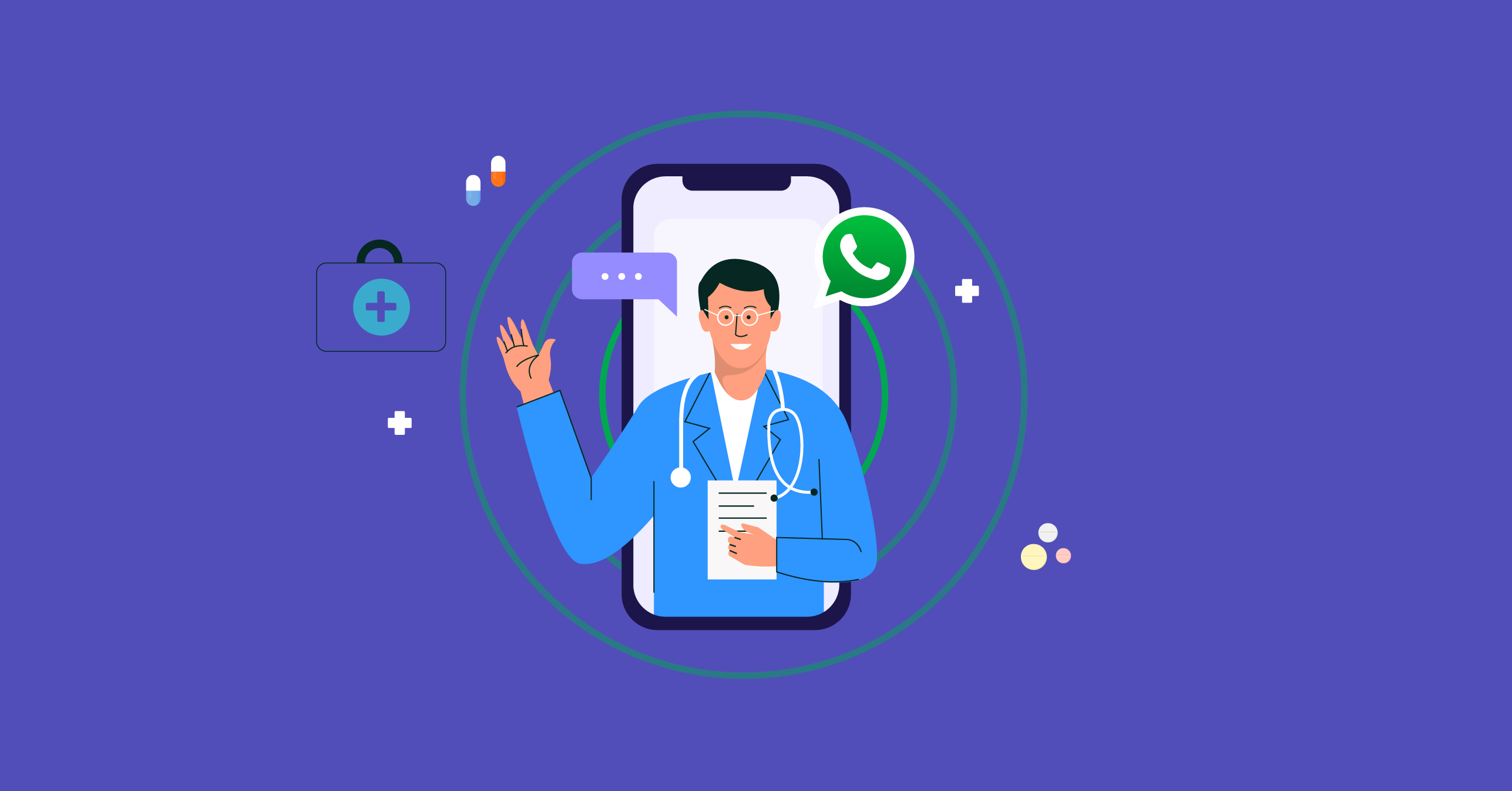
The benefits of WhatsApp-powered telemedicine are multifaceted. Along with physicians, patients also save time and resources, sidestepping the need for arduous travel and lengthy waiting times. For individuals with mobility challenges or residing in remote areas, this use case becomes a lifeline, ensuring that medical guidance is within reach without undue hardship.
The convenience of virtual consultations extends beyond logistical ease. Patients find solace in the familiar surroundings of their homes, which can contribute to a more candid exchange of health concerns. This level of comfort is invaluable, as open communication is pivotal for accurate diagnoses and effective treatment plans.
Moreover, the efficiencies of WhatsApp amplify the effectiveness of these consultations. Providers can share multimedia resources, such as images and videos, to enhance explanations and facilitate patient understanding. This interactive dynamic takes patient engagement to new heights, rendering medical advice not just informative but empowering.
Use Case 6: Test Results Delivery
The journey from medical tests to receiving results is often rigged with a number of emotions—anticipation, curiosity, and sometimes even anxiety. When it comes to patient-centered care, the timely and secure delivery of test results holds the potential to reshape this journey. Here, WhatsApp emerges as a beacon of convenience and reassurance, offering a secure and confidential option for healthcare providers to transmit results directly to patients.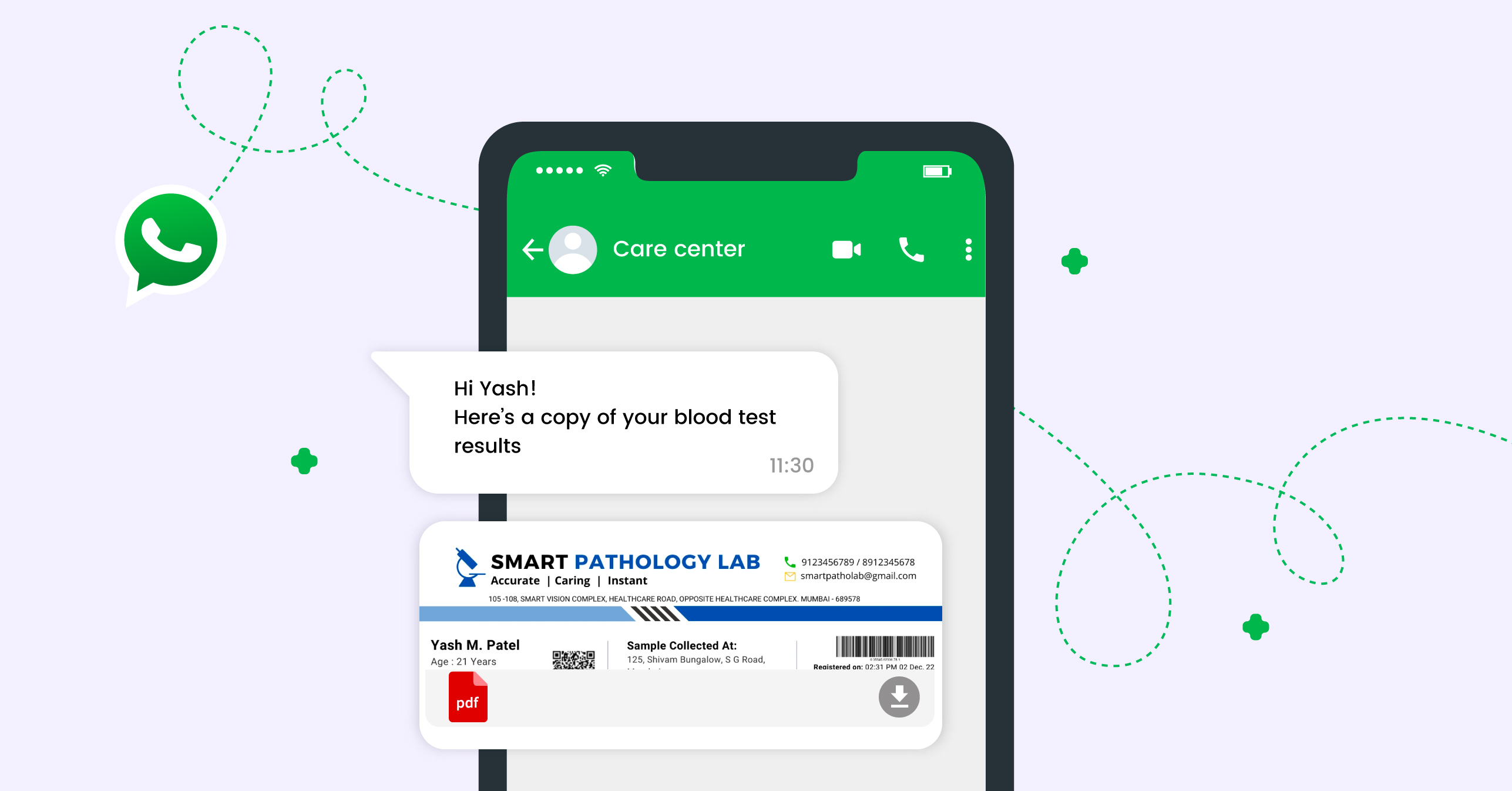
The value of this use case extends beyond convenience—it’s about alleviating the emotional burden that often accompanies the waiting period. WhatsApp’s real-time communication channels deliver test results promptly, reducing the window of uncertainty and offering patients peace of mind. This promptness also translates into timely interventions for necessary follow-up actions, a crucial aspect of certain medical conditions.
What’s more, the secure and confidential nature of WhatsApp ensures that patient data remains safeguarded. As medical professionals deliver sensitive information directly to patients, the element of confidentiality becomes a hallmark of this approach, fostering trust and strengthening patient-provider relationships.
WhatsApp Use Case 7: Customer Support
Efficient customer support is essential for patient satisfaction and quick issue resolution. WhatsApp’s instant messaging provides a direct line between patients and healthcare providers, simplifying communication. Patients can seek clarifications, ask questions, and get timely help without lengthy phone calls or in-person visits.
Every patient interaction is unique, requiring swift attention. WhatsApp’s real-time chat empowers patients to reach out effortlessly and receive prompt solutions. This accessibility embodies patient-centered care, respecting patients’ time and minimizing uncertainties.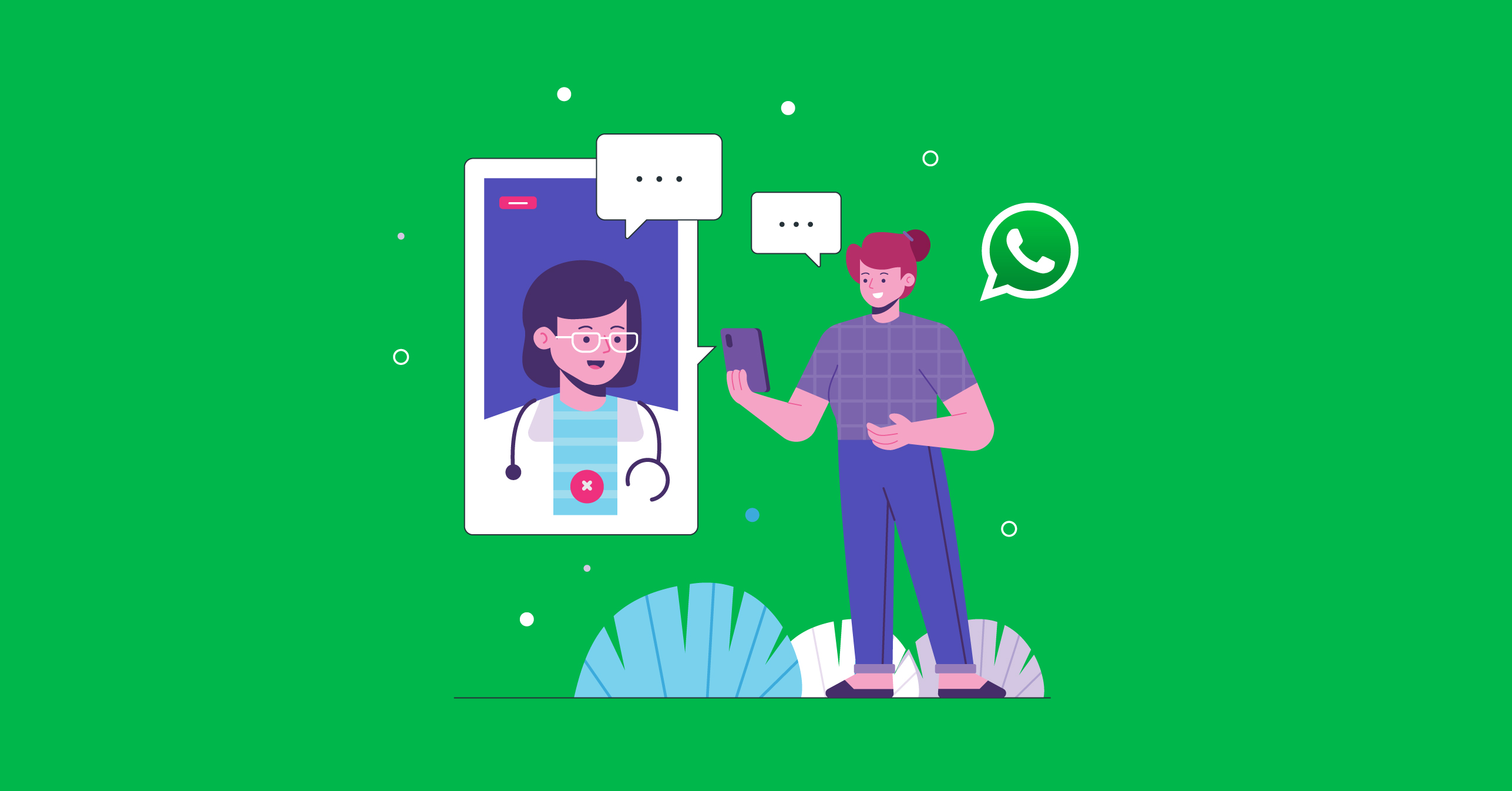
WhatsApp’s flexibility accommodates patient preferences. From quick queries to detailed concerns, patients find comfort in the familiar interface. This spans communication barriers and resonates across diverse patient demographics. Therefore, this approach enhances the patient experience and builds trust in the provider’s responsiveness. According to research, 94% of encounters didn’t require agent assistance, a lab that used WhatsApp to conduct medical testing services saved over $2.5M in customer service costs. Consequently, 20 times less call center staff was needed. But there’s more! The percentage of satisfied customers increased by 90%!
Use Case 8: Handling Payments
Beyond chats and calls, WhatsApp seamlessly integrates an invaluable functionality: handling payments. This groundbreaking feature revolutionizes healthcare transactions, offering patients a frictionless way to settle bills, appointment fees, and more, all within the confines of a familiar messaging interface.
Imagine the ease of paying for medical services without the need to switch between apps or visit a physical location. WhatsApp’s secure payment gateways ensure that transactions are protected, underscoring the provider’s commitment to patient data security. This feature also reduces the risk associated with cash handling and minimizes the hassle of managing paper receipts.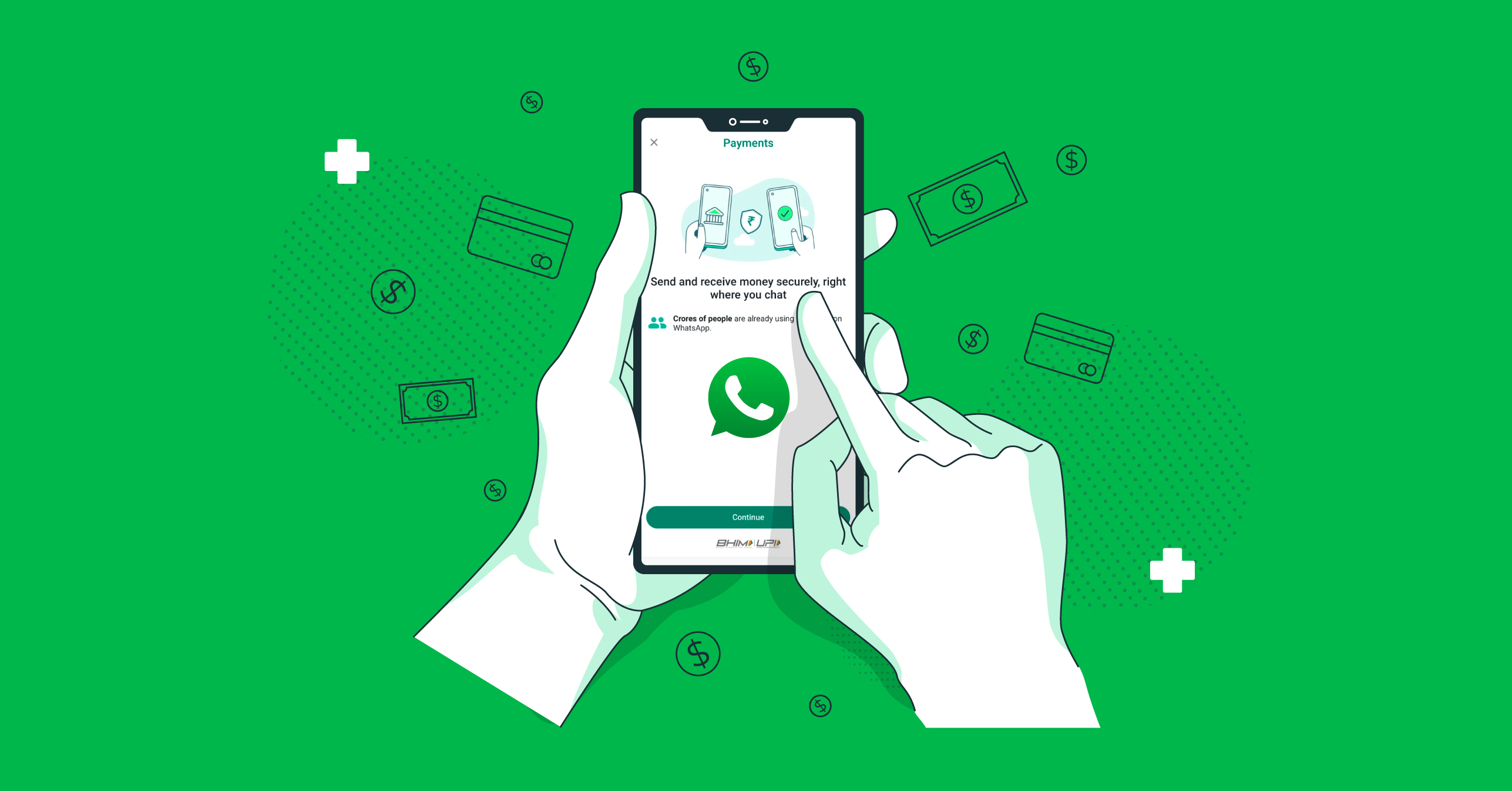
The patient journey transforms into a seamless continuum, from booking an appointment to making payments, all in one digital space. The result is enhanced patient experience—an aspect that’s becoming increasingly synonymous with quality healthcare. Patients appreciate the convenience of managing financial transactions within a platform they already engage with daily.
WhatsApp Use Case 9: Feedback and Surveys
Patient feedback is a valuable resource for healthcare providers to continuously improve their services. WhatsApp offers a direct channel for collecting patient insights and conducting surveys. By actively engaging patients and seeking their opinions, providers can gain valuable insights into patient preferences, satisfaction levels, and areas for improvement.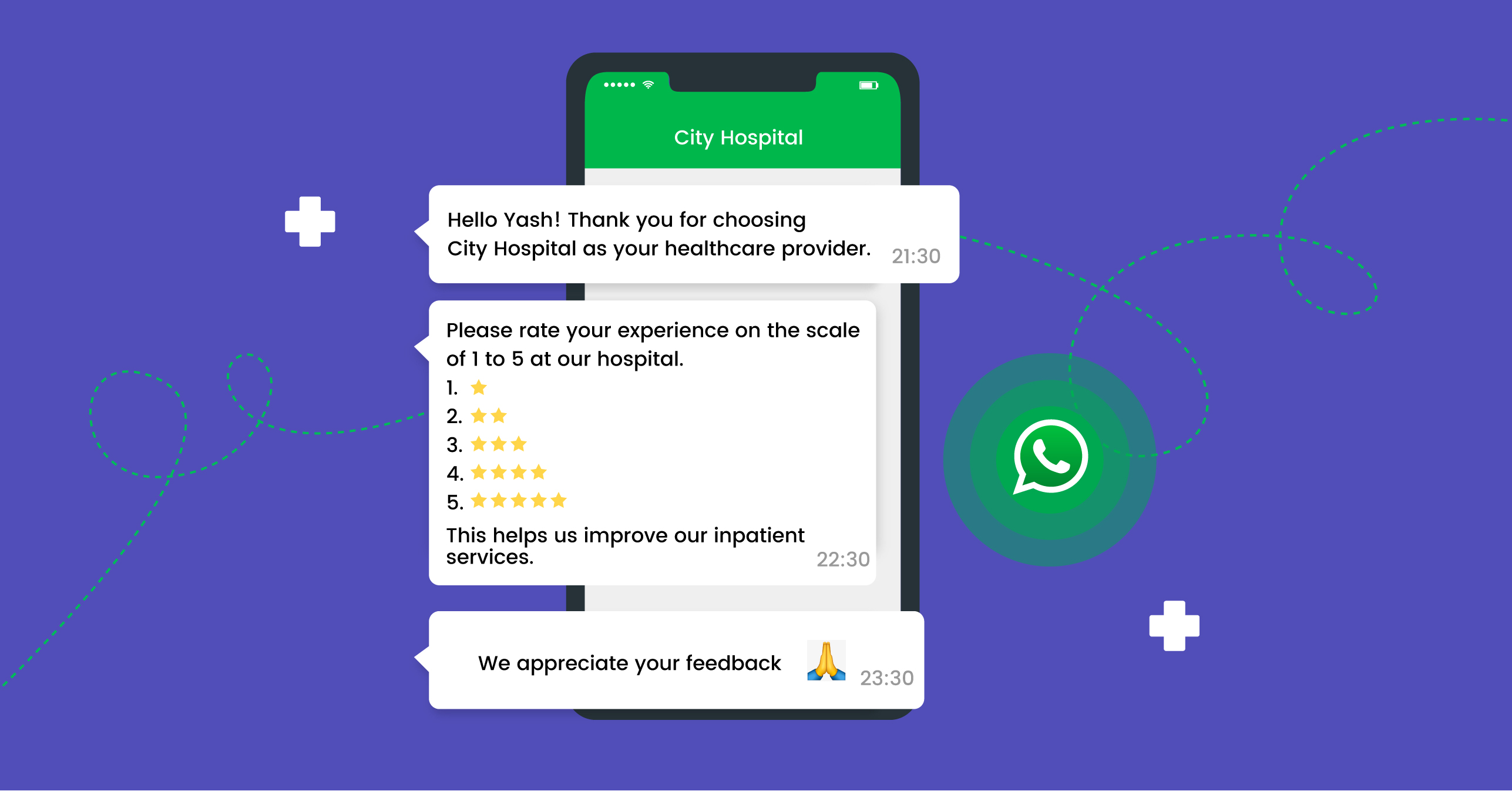
This use case is a testament to a healthcare provider’s commitment to patient-centered care, where the provider not only listens but also actively responds. Patient feedback isn’t just an afterthought; it becomes the groundwork that shapes the future of healthcare delivery.
Use Case 10: Promotion of Health Products/Services
Marketing Health-tech products and services can be effectively achieved through WhatsApp. Providers can showcase new products, medical devices, or healthcare services to subscribers. By offering exclusive offers, discounts, or promotions through WhatsApp, providers can incentivize patients to explore and take advantage of the offered services.
This use case isn’t solely about marketing—it’s about fostering an interaction. WhatsApp’s intimate environment creates a space for patients to engage, question, and discover the offerings that might transform their health journeys.
The outcome? Patient engagement deepens as they’re empowered to take charge of their health choices. The relationship between healthcare providers and patients evolves from a transaction to a partnership founded on mutual understanding and shared goals.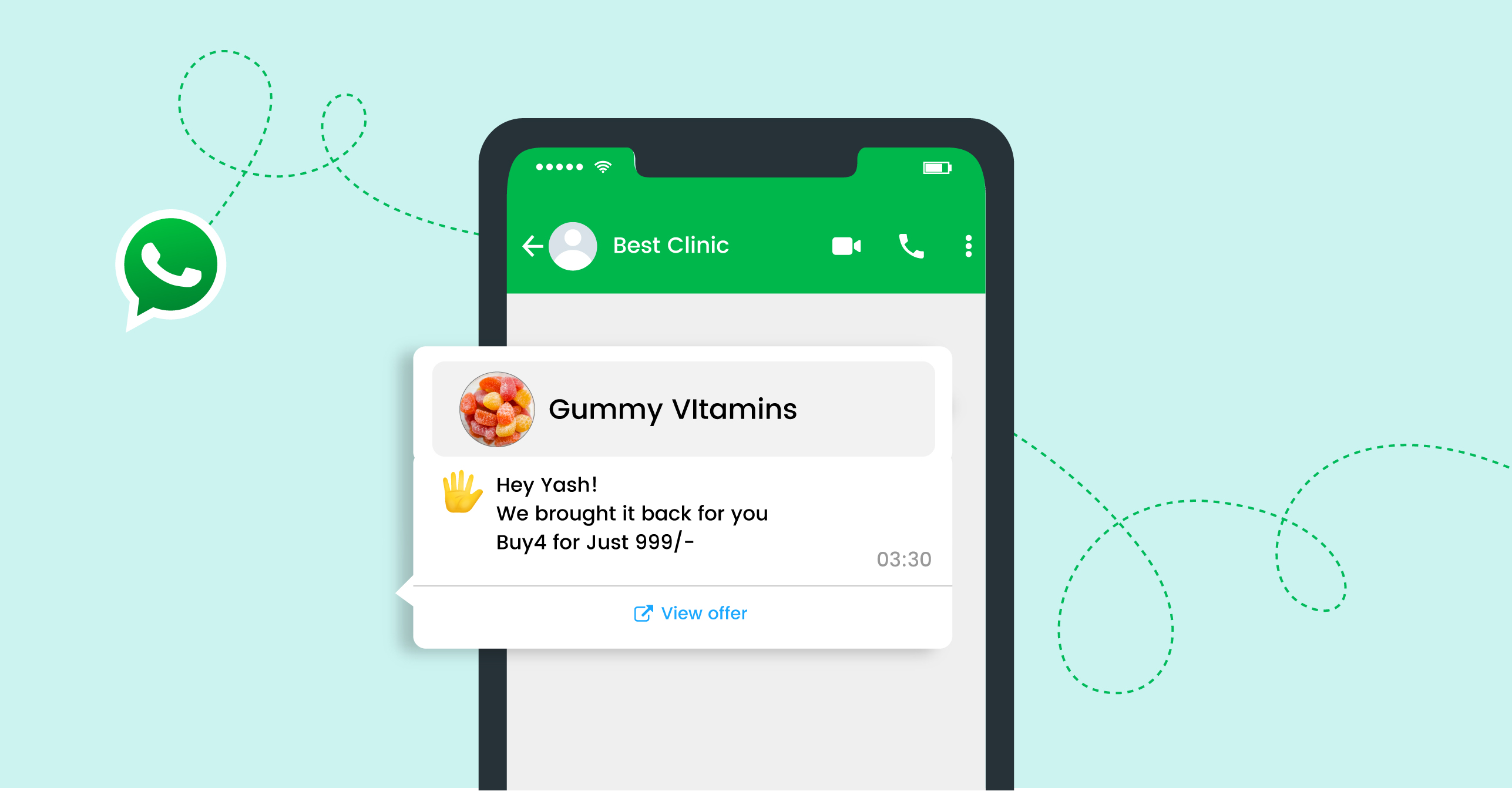
In essence, WhatsApp’s role in promoting health products and services creates an interaction that harmonizes innovation, engagement, and empowerment. As patients embark on the journey of exploring novel healthcare solutions, they’re not just consumers; they’re active participants in a dynamic journey where their choices compose the future of their well-being.
Conclusion
The integration of WhatsApp into Healthtech/Healthcare marketing strategies represents a significant shift in patient engagement and communication. By harnessing the diverse range of use cases offered by WhatsApp, healthcare providers can foster stronger patient relationships, enhance patient education, and ultimately create a more patient-centric healthcare experience.
As the healthcare horizon continues to expand, the ability to leverage WhatsApp’s potential becomes a competitive advantage. Healthcare providers that recognize the power of this platform and integrate it intelligently will stand out. By blending technology and healthcare compassion, these companies will not only thrive but also shape the future of patient engagement.
Elevate patient engagement like never before and lead the way in the evolving healthcare landscape. Take a demo with WebEngage to integrate technology and healthcare compassion and take your patient interactions to unparalleled heights.



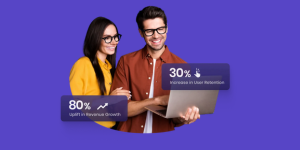
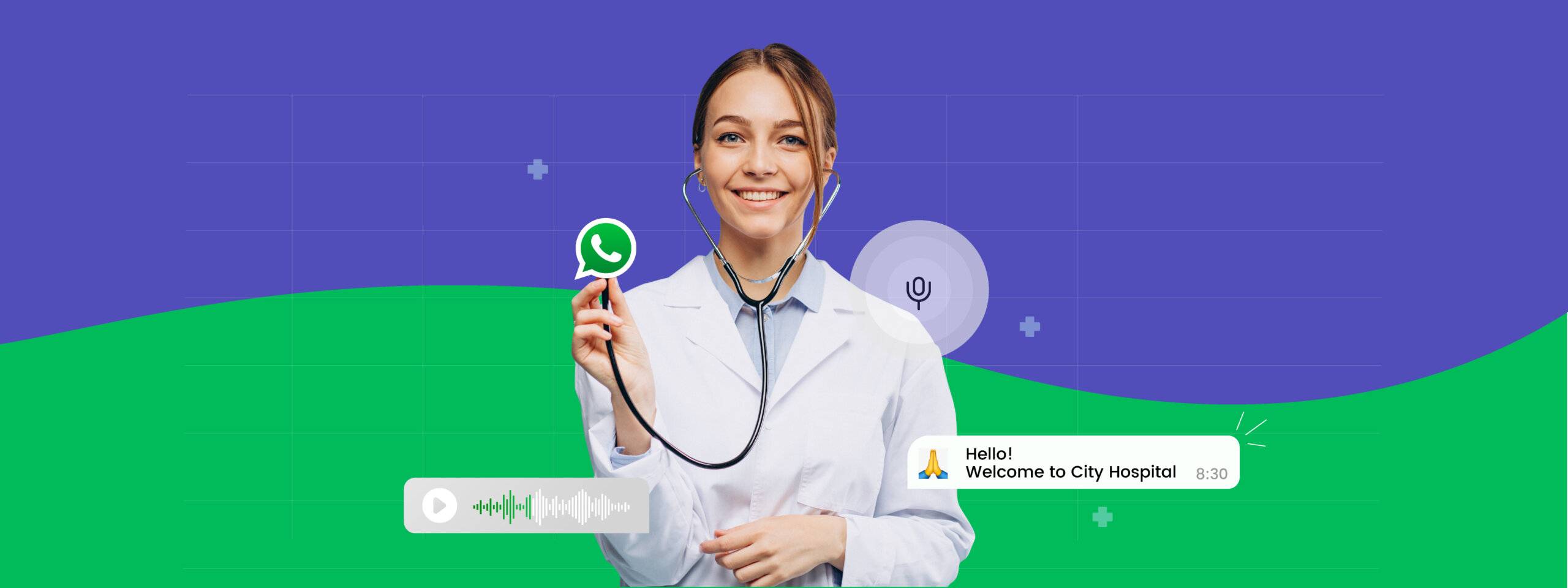
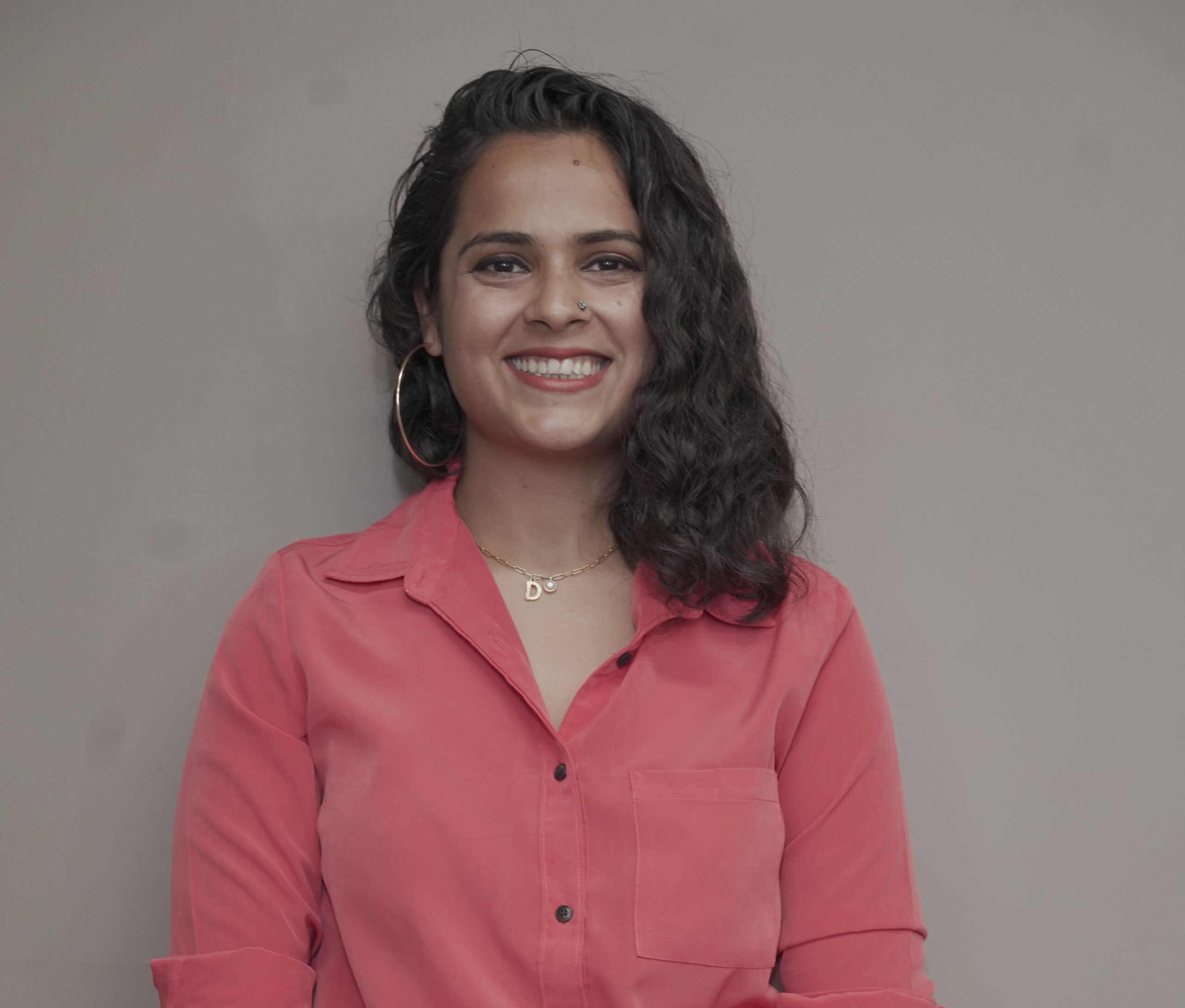
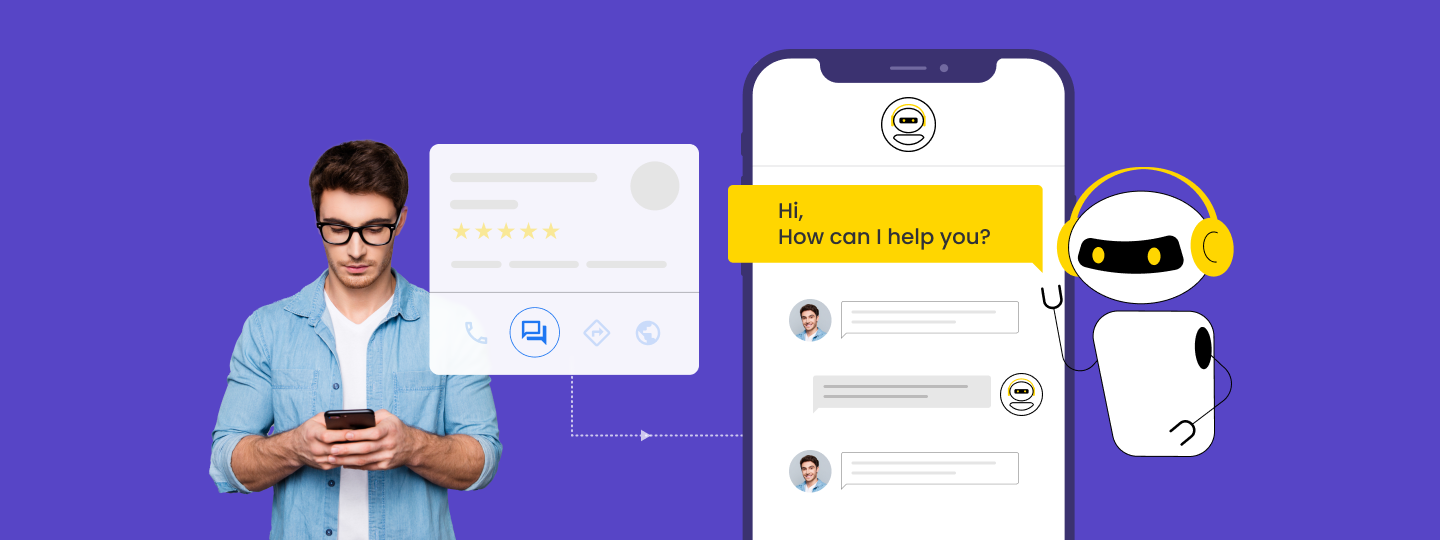
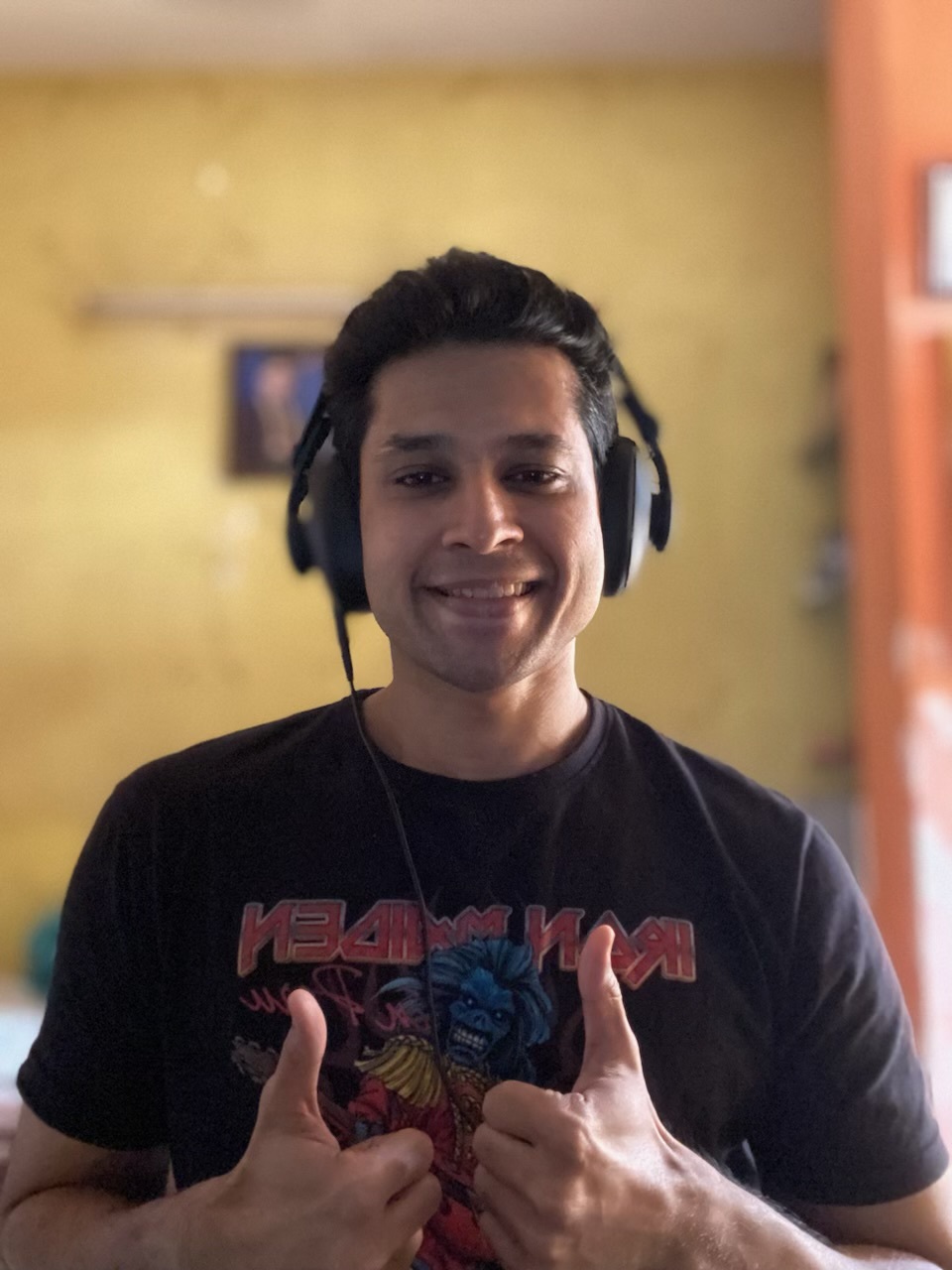 Dev Iyer
Dev Iyer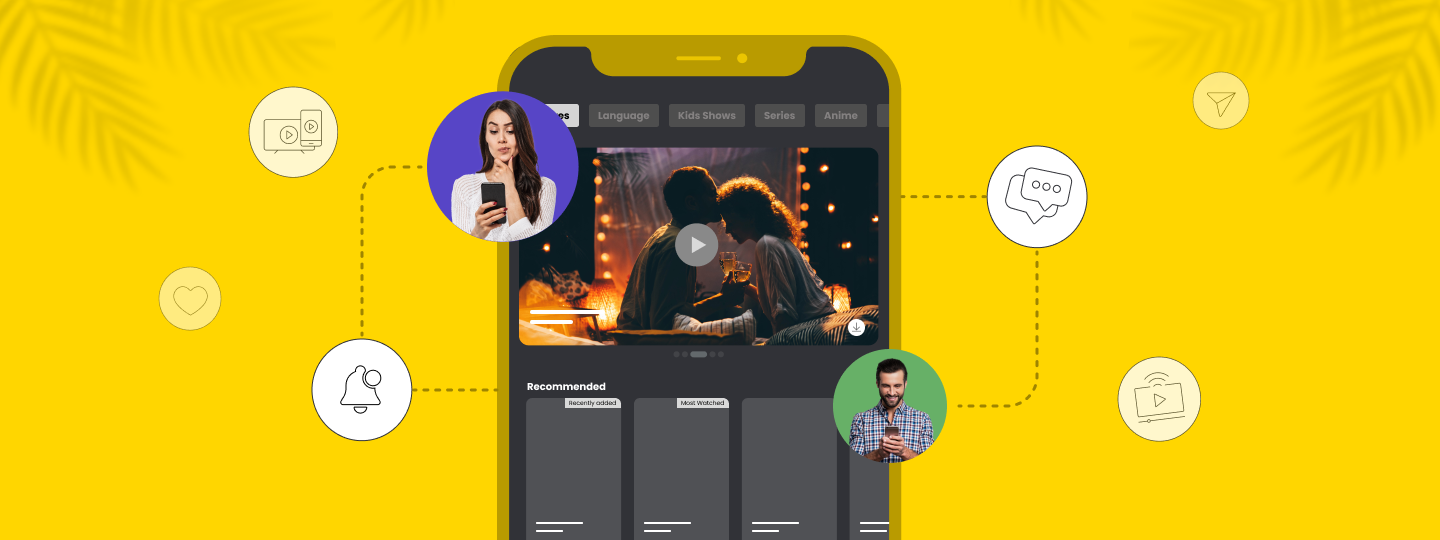
 Vanhishikha Bhargava
Vanhishikha Bhargava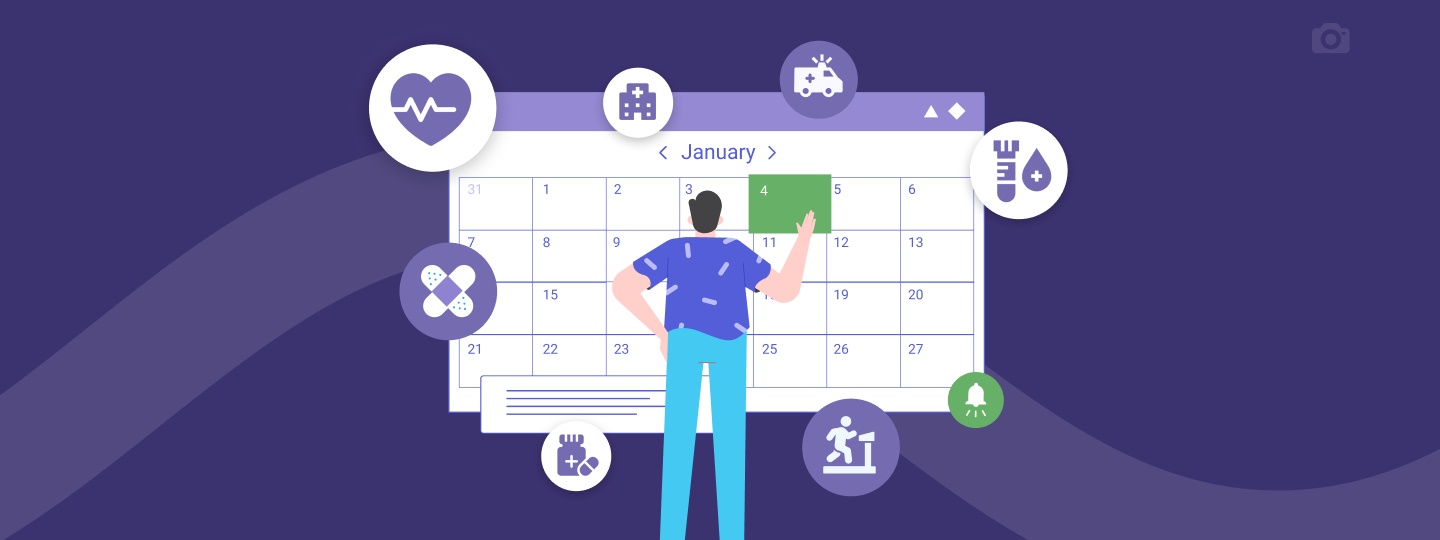

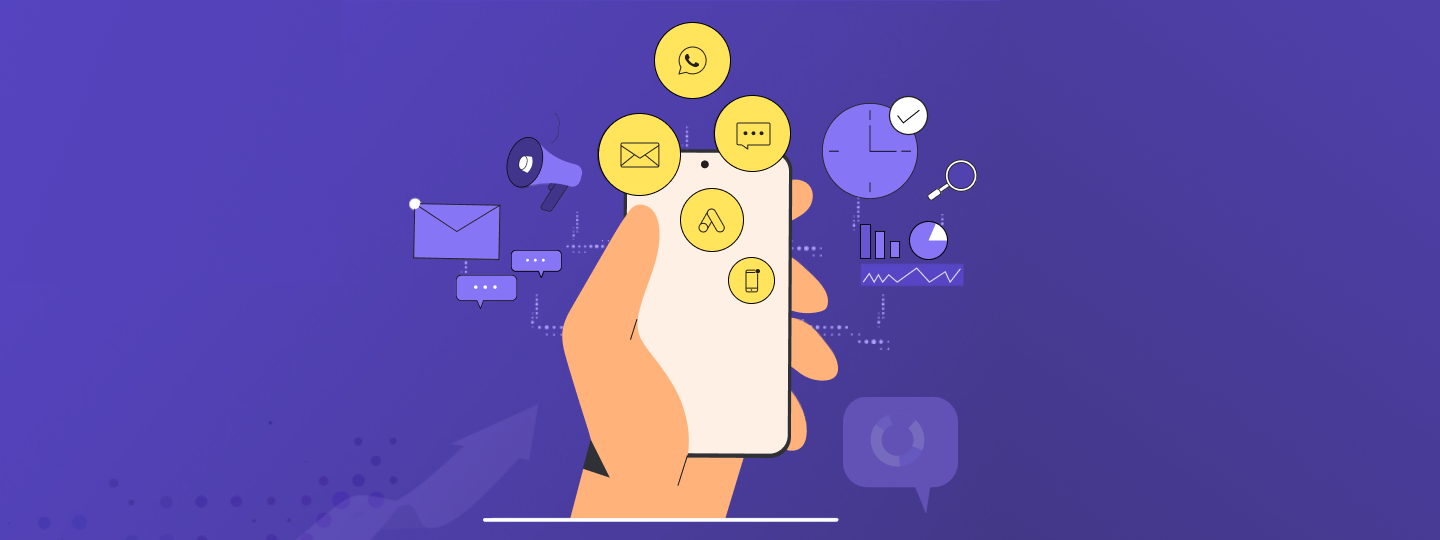
 Inioluwa Ademuwagun
Inioluwa Ademuwagun